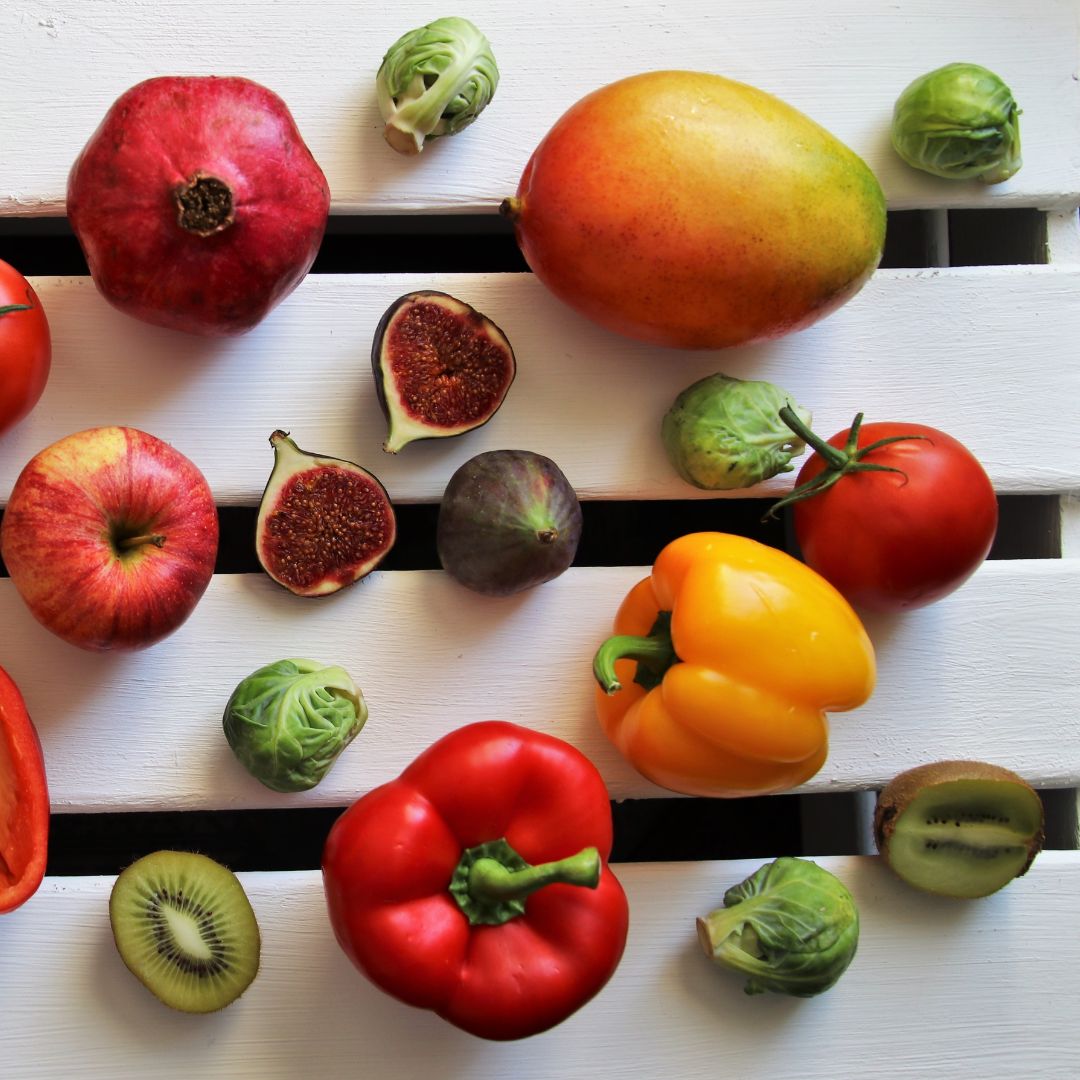
Best Fruits and Vegetables to Eat Daily for Optimal Health
Incorporating a variety of fruits and vegetables into your daily diet is essential for maintaining good health and preventing chronic diseases. With their rich nutrient profiles, these foods provide vitamins, minerals, antioxidants, and fiber that are crucial for overall well-being. This comprehensive guide will explore the best fruits and vegetables to eat daily, their health benefits, serving sizes, and tips for incorporating them into your meals.

Introduction
Fruits and vegetables are often referred to as the cornerstone of a healthy diet due to their numerous health benefits. They are low in calories but high in essential nutrients, making them an ideal choice for anyone looking to improve their diet or manage their weight.
The Nutritional Powerhouse
Fruits and vegetables are packed with vitamins (such as A, C, and K), minerals (like potassium and magnesium), fiber, and antioxidants that help combat oxidative stress in the body.
The Importance of Fruits and Vegetables in Your Diet
Eating a variety of fruits and vegetables is crucial for several reasons:
- Disease Prevention: Regular consumption can lower the risk of chronic diseases such as heart disease, diabetes, and certain cancers.
- Weight Management: High in fiber and water content, fruits and vegetables help you feel full longer, reducing overall calorie intake.
- Digestive Health: The fiber found in these foods promotes healthy digestion and prevents constipation.
Recommended Daily Servings
Health organizations recommend that adults consume at least five servings of fruits and vegetables each day:
- Fruits: Aim for about 2 servings per day.
- Vegetables: Aim for about 3 servings per day.
What Counts as a Serving?
Understanding portion sizes is essential for meeting these recommendations:
- Fruits:
- One medium apple or banana.
- One cup of berries or chopped fruit.
- Vegetables:
- One cup of raw leafy greens.
- Half a cup of cooked vegetables.
Best Fruits to Eat Daily
Here are some of the best fruits you should consider including in your daily diet:
Apples
Apples are rich in fiber, vitamin C, and various antioxidants. They are known for their heart health benefits and can help regulate blood sugar levels.
Bananas
Bananas are a great source of potassium, vitamin B6, and vitamin C. They provide quick energy due to their natural sugars and are perfect for pre-workout snacks.
Berries
Berries like strawberries, blueberries, raspberries, and blackberries are packed with antioxidants known as flavonoids that promote heart health and improve brain function.
Oranges
Oranges are well known for their high vitamin C content, which boosts immunity and skin health. They also contain fiber that aids digestion.
Avocados
Avocados are unique fruits that provide healthy fats (monounsaturated fats) along with fiber, potassium, and vitamins E and K.
Best Vegetables to Eat Daily
Incorporating a variety of vegetables into your meals is essential for optimal health:
Leafy Greens (Spinach, Kale)
Leafy greens are nutrient-dense foods rich in vitamins A, C, K, iron, calcium, and antioxidants that support overall health.
Cruciferous Vegetables (Broccoli, Cauliflower)
Cruciferous vegetables contain compounds that have been shown to reduce cancer risk while providing fiber and essential nutrients.
Bell Peppers
Bell peppers are high in vitamins A and C while being low in calories; they add color and crunch to salads and stir-fries.
Carrots
Carrots are an excellent source of beta-carotene (which converts to vitamin A), fiber, and antioxidants that support eye health.
Tomatoes
Tomatoes are rich in lycopene—a powerful antioxidant linked to heart health—and provide vitamins C and K.
Health Benefits of Eating Fruits and Vegetables
Regularly consuming a variety of fruits and vegetables can lead to numerous health benefits:
- Improved Heart Health: Diets rich in fruits and vegetables lower blood pressure and cholesterol levels.
- Better Weight Control: High-fiber foods keep you feeling full longer.
- Enhanced Immune Function: Vitamins from fruits and vegetables boost immune responses.
- Reduced Risk of Chronic Diseases: Regular consumption is linked to lower risks of diabetes, obesity, heart disease, stroke, and certain cancers.
Tips for Incorporating More Fruits and Vegetables into Your Diet
To ensure you’re getting enough fruits and vegetables each day:
- Start Your Day Right: Add fruits to your breakfast cereal or smoothies.
- Snack Smart: Keep cut-up veggies or whole fruits handy for healthy snacks.
- Make Salads Interesting: Experiment with different greens, toppings like nuts or seeds, dressings made from olive oil or yogurt.
- Cook with Color: Include a variety of colorful vegetables in your meals; they often have different nutrients.
- Get Creative with Recipes: Try new recipes that incorporate more fruits or vegetables into your favorite dishes.
Common Mistakes to Avoid
When trying to increase your fruit and vegetable intake:
- Relying on Juices: While juice can count towards your intake, whole fruits provide more fiber.
- Ignoring Frozen or Canned Options: These can be just as nutritious as fresh options—just watch out for added sugars or sodium.
- Not Varying Your Choices: Eating a wide range ensures you get different nutrients; don’t stick to just one or two types.
Frequently Asked Questions
What are the health benefits of eating fruits and vegetables daily?
Eating a variety of fruits and vegetables daily provides essential vitamins, minerals, and dietary fiber, which are crucial for maintaining overall health. They can help reduce the risk of chronic diseases such as heart disease, stroke, and certain types of cancer. Additionally, they support digestive health and can aid in weight management due to their low calorie content and high nutrient density.
How many servings of fruits and vegetables should I consume each day?
Health guidelines recommend consuming at least five servings of fruits and vegetables daily. This typically includes at least two servings of fruit and three servings of vegetables. A serving is generally considered to be about 80 grams or a medium piece of fruit.
Which fruits are considered the healthiest to eat daily?
Some of the healthiest fruits to include in your daily diet are:
- Apples: High in fiber and vitamin C.
- Bananas: Great source of potassium and vitamin B6.
- Berries (e.g., blueberries, strawberries): Rich in antioxidants.
- Oranges: Excellent source of vitamin C.
- Avocados: Unique for their healthy fats, fiber, and potassium.
What vegetables should I eat daily for optimal health?
Incorporating a variety of vegetables can enhance your diet. Recommended options include:
- Spinach: Packed with vitamins A and K.
- Broccoli: Contains vitamins C, K, and folate.
- Carrots: High in beta-carotene for eye health.
- Bell Peppers: Rich in vitamin C and antioxidants.
- Garlic: Known for its heart health benefits.
Are there specific fruits or vegetables I should avoid?
While most fruits and vegetables are beneficial, it’s best to limit those that are processed or have added sugars, such as canned fruits in syrup or fried vegetables. Potatoes and other starchy vegetables do not count towards the recommended servings because they primarily provide starch rather than essential nutrients.
How can I easily incorporate more fruits and vegetables into my diet?
Here are some simple tips:
- Add fruits to your breakfast (e.g., berries in yogurt or bananas on cereal).
- Snack on raw veggies with hummus or a healthy dip.
- Include a salad with lunch or dinner.
- Blend smoothies with a mix of fruits and leafy greens.
- Experiment with different cooking methods to keep meals interesting.
Can frozen or canned fruits and vegetables be as nutritious as fresh ones?
Yes, frozen or canned fruits and vegetables can be just as nutritious as fresh ones, especially if they are processed without added sugars or salts. They can be a convenient option when fresh produce is not available.
What is the best way to store fruits and vegetables to maintain their nutrients?
To preserve their nutrients:
- Store fresh produce in a cool, dry place or in the refrigerator as needed.
- Keep cut fruits from browning by dipping them in lemon juice.
- Avoid soaking vegetables for long periods to prevent nutrient loss.
Conclusion
Incorporating more fruits and vegetables into your daily diet is one of the simplest ways to enhance your overall health while enjoying delicious flavors! By understanding the best options available along with their benefits—and following helpful tips—you can create a vibrant plate filled with nutritious choices every day!
